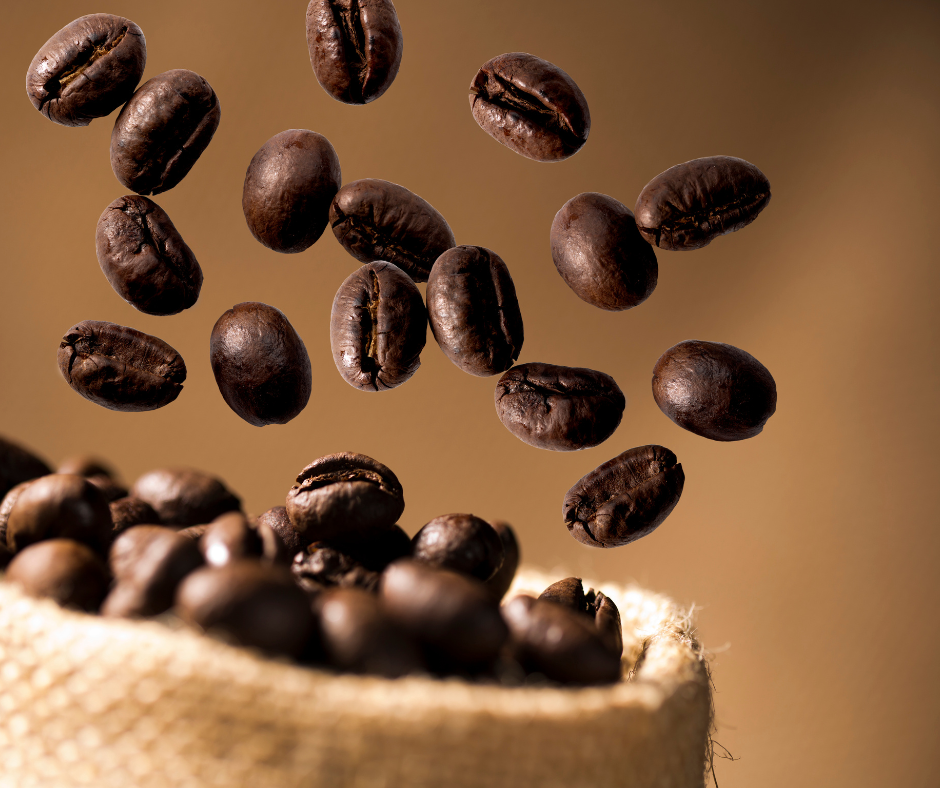Introduction
Caffeine is a widely consumed stimulant that helps to keep us awake and alert throughout the day. Many people rely on caffeine to boost their energy, especially in the mornings or during long work hours. But have you ever wondered ‘How Long Does It Take For Caffeine To Kick In?‘ This article will explore the science behind caffeine’s effects and the timeline for its onset.
The Role Of Caffeine In Keeping Us Awake And Alert
Caffeine works by blocking the action of a neurotransmitter called adenosine in our brain. Adenosine is responsible for making us feel tired and sleepy. By blocking its effects, caffeine promotes wakefulness and keeps us alert. In addition, caffeine stimulates the release of adrenaline, enhancing our energy levels and improving focus and concentration.
Importance Of Understanding When Caffeine Kicks In
Knowing when caffeine will take effect is crucial for planning your day and optimizing its benefits. The timeline for caffeine’s onset can vary depending on several factors, including the individual’s metabolism, tolerance, and method of consumption. Generally, caffeine takes effect within 15 to 45 minutes after consumption and reaches its peak concentration in the bloodstream within 30 to 60 minutes.
However, the rate at which caffeine is metabolized and eliminated from the body can vary widely from person to person. Factors such as age, liver function, and medication use can influence the metabolism of caffeine. On average, caffeine has a half-life of about 3 to 5 hours, meaning it takes time for the body to eliminate half of the caffeine ingested.
It is important to note that individual sensitivity to caffeine can also play a role. Some people might feel the effects of caffeine more quickly and intensely, while others may be less sensitive. Regular caffeine consumers may also develop a tolerance, requiring higher doses to achieve the same effects.
In conclusion, understanding when caffeine kicks in can help you make better daily dietary decisions. Planning your caffeine consumption strategically allows you to maximize its benefits and avoid potential issues, such as sleep disturbances or caffeine-induced jitters. Remember that moderation is key in caffeine, and it’s always a good idea to listen to your body and adjust your consumption accordingly.
Factors Affecting The Onset Of Caffeine’s Effects
How Long Does It Take For Caffeine To Kick In?
Caffeine, the most widely consumed psychoactive substance globally, is known for boosting energy and mental alertness. But have you ever wondered ‘How Long Does It Take For Caffeine To Kick In?’
On average, caffeine takes about 45 minutes to reach peak levels in the blood after consumption. However, the actual time can vary depending on various factors.
Factors That Can Influence The Speed Of Caffeine’s Effects
- Metabolism: Metabolism is crucial in determining how quickly your body processes caffeine. Individuals with a faster metabolism may experience the effects of caffeine sooner than those with a slower metabolism.
- Tolerance: Regular caffeine consumers tend to develop a certain tolerance level for its effects over time. As a result, it may take more caffeine or longer for them to feel the same effects as someone who consumes caffeine less frequently.
- Food: The presence of food in the stomach can affect the absorption and distribution of caffeine. Consuming caffeine on an empty stomach can lead to quicker absorption and a faster onset of its effects.
- Age: Age can also influence how quickly caffeine affects the body. Younger individuals tend to metabolize caffeine faster than older individuals, resulting in a faster onset of its effects.
- The amount consumed: The caffeine consumed significantly determines how quickly its effects are felt. Higher doses of caffeine will generally lead to a faster onset of its effects.
- Method of consumption: The method of consuming caffeine can impact how quickly it takes effect. For example, consuming caffeine through beverages like coffee or energy drinks allows quicker absorption than consuming it through foods or supplements.
It’s important to note that the effects of caffeine can vary from person to person, and individual experiences may differ. Factors such as overall health, genetics, and lifestyle choices can also influence how caffeine affects each individual.
In conclusion, while the average time for caffeine to reach peak levels in the blood is around 45 minutes, it is essential to consider various factors that can affect the speed of its effects. By understanding these factors, you can better manage caffeine consumption and optimize its benefits.
Duration Of Caffeine’s Effects
Definition And Significance Of Caffeine’s Half-life In The Body
Caffeine, the beloved stimulant found in coffee, tea, energy drinks, and some medications, has a half-life in the body. But what exactly does that mean? The half-life of caffeine refers to the time it takes for the body to eliminate half of the caffeine consumed. It is an important concept as it helps determine how long the effects of caffeine will last and when it is safe to consume more without interfering with sleep or experiencing negative side effects.
The half-life of caffeine varies from person to person, and it can be affected by various factors such as age, liver function, pregnancy, and medication use. On average, the half-life of caffeine in the body ranges from 3 to 5 hours. This means that if you consume a cup of coffee containing 100 mg of caffeine, after 3 to 5 hours, only 50 mg will remain in your system.
Average Half-life Of Caffeine And Factors That Can Affect It
While the average half-life of caffeine is relatively consistent, it can be influenced by certain factors. For example, pregnant individuals may experience a longer half-life due to changes in hormone levels and increased blood volume. Similarly, individuals with liver problems may have a longer half-life as the liver plays a significant role in metabolizing caffeine.
Conversely, factors such as age and medication intake can shorten the half-life of caffeine. Older adults tend to have a shorter half-life due to decreased liver function, which affects caffeine metabolism. Additionally, certain medications, such as those used to treat asthma or heart conditions, can increase the metabolism of caffeine and lead to a shorter half-life.
It is important to note that the half-life of caffeine is not the same as the duration of its effects. While the effects of caffeine may diminish after the half-life, some individuals may still experience the stimulant effects, such as increased alertness and decreased fatigue, for several hours beyond that time.
In conclusion, understanding the half-life of caffeine can help individuals regulate their caffeine intake and manage its effects. It is essential to consider personal factors and medications that may impact the half-life of caffeine to plan consumption effectively. So, next time you reach for that cup of coffee, remember that the effects may last longer than you think!
Variations And Individual Factors
How Individual Differences In Body Size, Age, And Health Can Impact Caffeine’s Effects?
It’s no secret that people react differently to caffeine. Body size, age, and health influence how quickly caffeine kicks in and how long its effects last.
Body Size: The larger the body size, the more caffeine it takes to feel the same effects. Because caffeine is distributed throughout the body, a larger body requires a higher dosage to experience the same stimulation level. Conversely, individuals with smaller body sizes may feel the effects of caffeine more quickly and intensely with a lower dosage.
Age: Age also plays a role in how caffeine affects us. Generally, younger individuals tend to metabolize caffeine faster than older individuals. This means that younger people may experience a quicker onset of caffeine’s effects and a shorter duration of those effects.
Health: One’s overall health can impact caffeine’s impact as well. Individuals with certain health conditions, such as liver disease or kidney problems, may process caffeine more slowly, leading to a prolonged duration of its effects. Additionally, certain medications can interact with caffeine and affect how it is metabolized in the body.
The Role Of Coffee Type, Brewing Method, And Amount Consumed In Determining Caffeine’s Onset And Duration
Individual factors influence caffeine’s effects, but the type of coffee, brewing method, and the amount consumed can also impact how quickly caffeine kicks in and how long its effects last.
Coffee Type: Different types of coffee, such as espresso, drip coffee, or cold brew, contain varying amounts of caffeine. Espresso tends to have a higher concentration of caffeine per ounce, so its effects may be felt more quickly than other coffee types.
Brewing Method: The brewing method can also affect caffeine’s onset and duration. For example, espresso is brewed under high pressure, extracting caffeine quickly. In contrast, cold brew coffee is steeped over a longer period, resulting in a smoother taste but potentially a slower release of caffeine.
Amount Consumed: Naturally, the more caffeine you consume, the more pronounced its effects will be. The amount of caffeine in a single serving of coffee can vary, so it’s important to be mindful of your intake. Additionally, consuming caffeine in large amounts or close to bedtime can interfere with sleep and potentially lead to a longer duration of its stimulatory effects.
It’s important to remember that individual experiences with caffeine can vary, and these factors are general guidelines. Understanding how these variations and individual factors impact caffeine’s onset and duration can help you make more informed decisions about caffeine intake. So, whether you’re a coffee lover or need a pick-me-up, consider these factors for a smoother caffeine experience.
Understanding Your Relationship With Coffee
The Unique Relationship Everyone Has With Caffeine
For many, starting the day without a cup of coffee is unimaginable. The taste, the aroma, and, most importantly, the caffeine kick make it an essential part of their routine. But do you wonder, ‘How Long Does It Take For Caffeine To Kick In?’
The truth is caffeine affects everyone differently. Factors such as body weight, metabolism, and tolerance levels significantly affect how quickly caffeine takes effect.
Factors To Consider In Managing Caffeine Intake For Desired Effects
- Body weight and metabolism: People with a higher body weight and faster metabolism process caffeine more quickly. If you fall into this category, you may experience the effects of caffeine kicking in faster than others.
- Tolerance levels: Regular coffee drinkers often develop a tolerance to caffeine. This means that the more frequently you consume caffeine, the less impact it will have on your body. If you have a high tolerance, it may take longer for the caffeine to kick in, and its effects may be less pronounced.
- Quantity and type of caffeine consumed: The amount and source of caffeine also influence how quickly it takes effect. Coffee tends to have higher caffeine content than other beverages, such as tea or soda. Additionally, larger doses of caffeine will likely have a more immediate impact.
- Time of consumption: Typically, it takes about 30 minutes to an hour for caffeine to enter your bloodstream and start having its stimulating effects. However, consuming caffeine on an empty stomach may speed up this process, while consuming it with food may delay its effects.
It’s important to note that individual experiences may vary, and these factors provide general guidelines. Listening to your body and understanding its unique response to caffeine is key to managing your intake for the desired effects.
Whether relying on caffeine for that morning energy boost or for increased focus during a study session, understanding how long it takes for caffeine to kick in can help you make more informed decisions about your consumption.
So, the next time you reach for your daily cup of joe, remember that the caffeine effects may vary depending on your body and habits. Take the time to understand your relationship with caffeine, and enjoy that much-needed pick-me-up!
FAQ: How Long Does It Take For Caffeine To Kick In?
Q: How long does it take to feel the effects of caffeine?
A: It typically takes between 15 to 60 minutes to feel the effects of caffeine after consumption. However, the exact timing may vary from person to person.
Q: Why is it important to be aware of the duration of caffeine’s effects?
A: It is important to understand the duration of caffeine’s effects as it can overlap with your planned bedtime and potentially affect the quality of your sleep if not managed carefully.
Q: How long does caffeine last in the body?
A: The half-life of caffeine, which is the time it takes for half of the initial amount of caffeine to be eliminated, is approximately four to six hours, according to the FDA. However, the lingering effects of caffeine may continue for around three to five hours, while it takes much longer for all the caffeine to leave the body completely.
Q: Why does the length of caffeine’s effects vary among individuals?
A: The duration of caffeine’s effects can vary based on various factors, including how quickly it is absorbed and metabolized by the body. Factors such as individual metabolism, body composition, and tolerance levels can contribute to the variations in how long caffeine lasts for different people.
Q: How long does it take for caffeine to wear off completely?
A: The time it takes for caffeine to wear off completely depends on an individual’s metabolism and other factors. While the stimulating effects of caffeine may begin within an hour after consumption, it can take several hours for those effects to diminish. It may even take longer for all the caffeine to be cleared from the body.
Q: What are the symptoms of caffeine withdrawal, and when do they typically occur?
A: Withdrawal symptoms can begin approximately 12 to 24 hours after the last intake of caffeine and may last for about two to nine days. These symptoms can include headaches, fatigue, irritability, and difficulty concentrating.
Conclusion
Now you should know ‘How Long Does It Take For Caffeine To Kick In?’. The time it takes for caffeine to kick in can vary from person to person, but it typically takes about 15 to 45 minutes for its effects to be felt. However, factors such as metabolism, tolerance, and the amount consumed can all influence how quickly caffeine is absorbed and its duration of effects. It is important to remember that caffeine can stay in the body for several hours, with its effects lasting between 4 to 6 hours on average.
Summary Of The Time It Takes For Caffeine To Kick In And Its Duration Of Effects
In summary, the onset of caffeine’s effects usually occurs within 15 to 45 minutes after consumption. This is when you may feel more alert and experience increased energy levels. However, remember that individual variations exist; some people may notice the effects sooner or later.
Once caffeine takes effect, its stimulating properties can last for several hours. On average, the duration of caffeine’s effects ranges between 4 to 6 hours. This period can vary based on factors such as caffeine consumption, metabolism, and personal tolerance. It is important to be aware of this duration to avoid consuming caffeine too close to bedtime, as it might interfere with sleep.
Importance Of Self-awareness And Moderation In Consuming Caffeine
While moderate caffeine consumption can offer various benefits, practicing self-awareness and moderation when consuming caffeinated beverages or products is crucial. Awareness of your tolerance and sensitivity to caffeine can help you determine an appropriate amount to consume and avoid potential side effects such as jitters, palpitations, or disrupted sleep.
Maintaining a healthy balance and knowing when to limit or reduce caffeine intake is essential for overall well-being. If you rely too heavily on caffeine to stay alert or experience negative effects, exploring alternative ways to boost energy levels and stay focused may be worth exploring.
Remember to listen to your body and make informed choices regarding caffeine consumption. By doing so, you can enjoy the benefits of caffeine while minimizing potential drawbacks.

Deb Carlson at Crosslake Coffee: Join Deb at Crosslake Coffee for a delightful blend of community, caffeine, and creativity. Discover the cozy ambiance and warm hospitality that make this local coffee shop a beloved gathering spot. From expertly crafted espresso drinks to mouthwatering pastries, Deb invites you to savor every sip and bite. Stay connected with the latest updates on specials, events, and live music performances by following Deb Carlson at Crosslake Coffee on social media. Embrace the vibrant online community and share your love for great coffee and good company with fellow enthusiasts. Don’t miss out on a moment of the Crosslake Coffee experience – connect with Deb on social media today.



